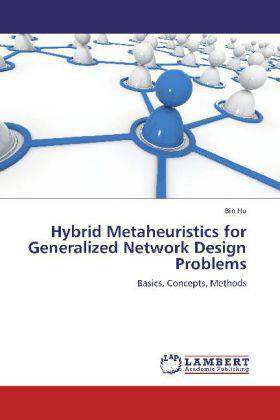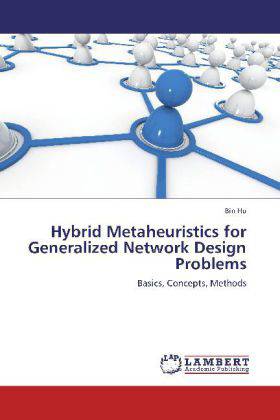
- Afhalen na 1 uur in een winkel met voorraad
- Gratis thuislevering in België vanaf € 30
- Ruim aanbod met 7 miljoen producten
- Afhalen na 1 uur in een winkel met voorraad
- Gratis thuislevering in België vanaf € 30
- Ruim aanbod met 7 miljoen producten
Zoeken
Hybrid Metaheuristics for Generalized Network Design Problems
Basics, Concepts, Methods
Bin Hu
Paperback | Engels
€ 85,45
+ 170 punten
Omschrijving
In this book, we consider several generalized network design problems which belong to the family of NP-hard combinatorial optimization problems. In contrast to their classical counterparts, the generalized versions are defined on graphs whose node sets are partitioned into clusters. The goal is to find a subgraph which spans exactly one node from each cluster and also meets further constraints respectively. Applicable methodologies for solving combinatorial optimization problems can roughly be divided into two mainstreams. The first class consists of algorithms which aim to solve these problems to proven optimality - provided that they are given enough run-time and memory. The second class are metaheuristics which compute approximate solutions but usually require significantly less run-time. By combining these two classes, we are able to form collaboration algorithms that benefit from advantages of both sides. Such approaches are considered for solving the generalized network design problems in this book.
Specificaties
Betrokkenen
- Auteur(s):
- Uitgeverij:
Inhoud
- Aantal bladzijden:
- 172
- Taal:
- Engels
Eigenschappen
- Productcode (EAN):
- 9783659275647
- Verschijningsdatum:
- 13/11/2012
- Uitvoering:
- Paperback
- Afmetingen:
- 150 mm x 220 mm
- Gewicht:
- 259 g

Alleen bij Standaard Boekhandel
+ 170 punten op je klantenkaart van Standaard Boekhandel
Beoordelingen
We publiceren alleen reviews die voldoen aan de voorwaarden voor reviews. Bekijk onze voorwaarden voor reviews.







